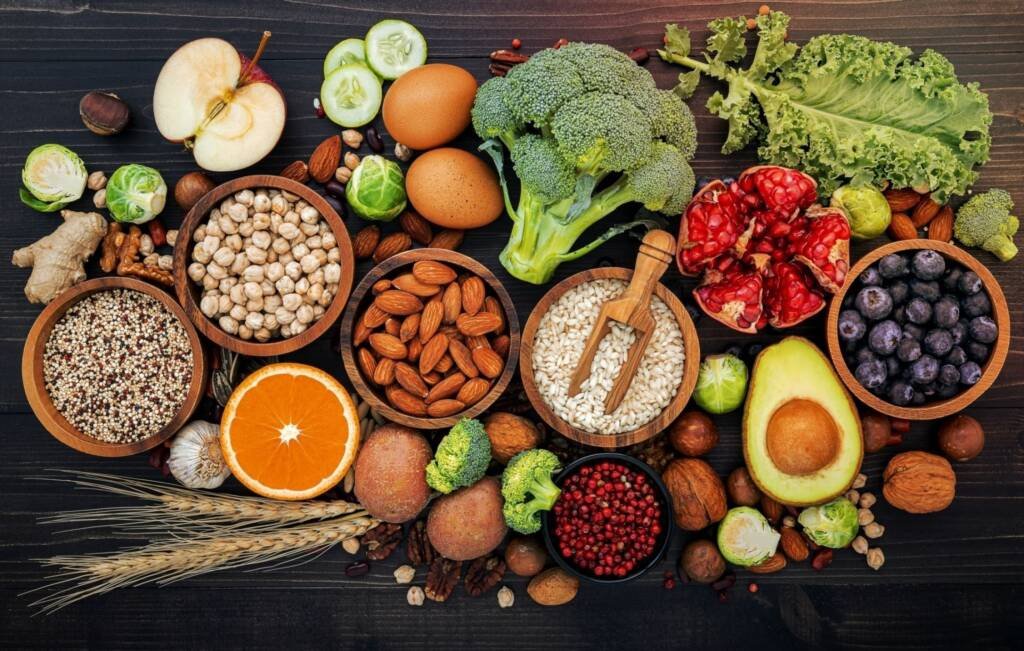You may already be aware that inflammation can cause premature aging and lead to various health conditions, such as heart disease and Alzheimer’s. In addition to receiving appropriate medical care, maintaining a healthy diet and lifestyle habits can aid in managing inflammation.
Inflammation is a response by your body’s immune system to potential threats from foreign substances. While it can be helpful in recovering from illnesses and injuries, chronic inflammation can lead to problems.
You have the power to control some of the effects. Get more information on how to make healthy choices.
Eating to Fight Inflammation:

1. Select foods that are not processed or refined: It is important to note that no magic ingredients for reducing inflammation exist. However, a diet consisting of unprocessed foods such as vegetables, whole grains, fruits, and lean proteins can help achieve this goal.
2. Use healthy fats: It is recommended that adults consume 25 to 35% of their daily calories from fat. Choosing mostly monounsaturated and polyunsaturated fats over butter or bacon is important. Good options include olive oil, nuts, seeds, and fatty fish.
3. Reduce the amount of frying: The way you cook matters too. Fried foods produce compounds called AGEs that stimulate inflammation. Switch to steaming, poaching, and baking. Microwaving is safe and convenient too.
4. Have an early dinner: According to research, consuming more food after 5 pm could increase inflammation, blood sugar, and weight gain. Having bigger meals during breakfast and lunch is suggested to prevent harmful effects. It is also recommended to refrain from having evening snacks.
5. Drink responsibly: Drinking alcohol can harm your liver, brain, and other organs in various ways. If you do decide to drink, it’s best to limit yourself to only one or two servings on any given day. Additionally, eat before and during events where you plan to consume alcohol.
6. Reduce your meat consumption: To reduce your intake of saturated fat, consider replacing beef and processed meat in your diet with plant-based options such as tofu and beans and low-fat dairy products.
7. Avoid excess sugar: It’s recommended that Americans consume no more than six teaspoons of added sugar each day, but on average, people consume 17 teaspoons. To reduce sugar intake, read ingredient labels and try using alternatives such as cinnamon and applesauce to satisfy your sweet cravings.
8. Enjoy the coffee: Good news for coffee lovers! It has been found that coffee can help reduce inflammation. According to experts, consuming 4 to 5 cups of coffee on a daily basis is generally considered safe for adults.
9. Consult your doctor: Individuals may have varying nutritional needs. If you have been diagnosed with celiac disease, avoiding whole grains containing gluten is essential. It is advised to follow the recommendations provided by your doctor.
Additional methods for combating inflammation:

1. Lose weight: Losing weight can have several benefits, one of which is reducing inflammation. Even a tiny amount of weight loss, such as 5 or 10 pounds, can have a significant impact.
2. Make sure to exercise regularly: Did you know that working out can boost your immune system? Aim for 150 minutes of moderate-intensity cardio activity each week to get the most out of your exercise routine and dedicate two days to resistance training. Not only will you feel great, but you’ll also support your immune system!

3. Sleep well: Consistently getting 8 hours of sleep each night by sticking to a regular bedtime can help alleviate the sleep difficulties caused by inflammation and prevent the worsening of associated symptoms.
4. Manage stress: Experiencing tension on a regular basis can have adverse effects on both your physical and mental health. Try incorporating relaxation techniques into your routine, such as listening to instrumental music to alleviate stress. Additionally, it may be helpful to confide in a trusted individual about your feelings.
5. Quit smoking: Giving up cigarettes can improve your immune system and reduce vascular inflammation caused by tobacco. Consider setting a quit date, utilizing different methods such as nicotine replacement, and seeking social support.
Conclusion
To sum it up, inflammation can cause numerous health issues. To reduce its effects, you should incorporate an anti-inflammatory diet that includes unprocessed foods and healthy fats, as well as avoiding excessive sugar and meat consumption. Additionally, stay active and get enough sleep, manage your stress levels, and quit smoking if applicable. By following these recommendations, you can positively impact your health and reduce inflammation in the body.
It is always best to consult with your doctor before making any significant changes to your diet and lifestyle. Your doctor can provide personalized advice tailored to your needs for optimal results. Taking an active role in reducing inflammation by following these tips can help you achieve long-term health benefits.






3 Comments